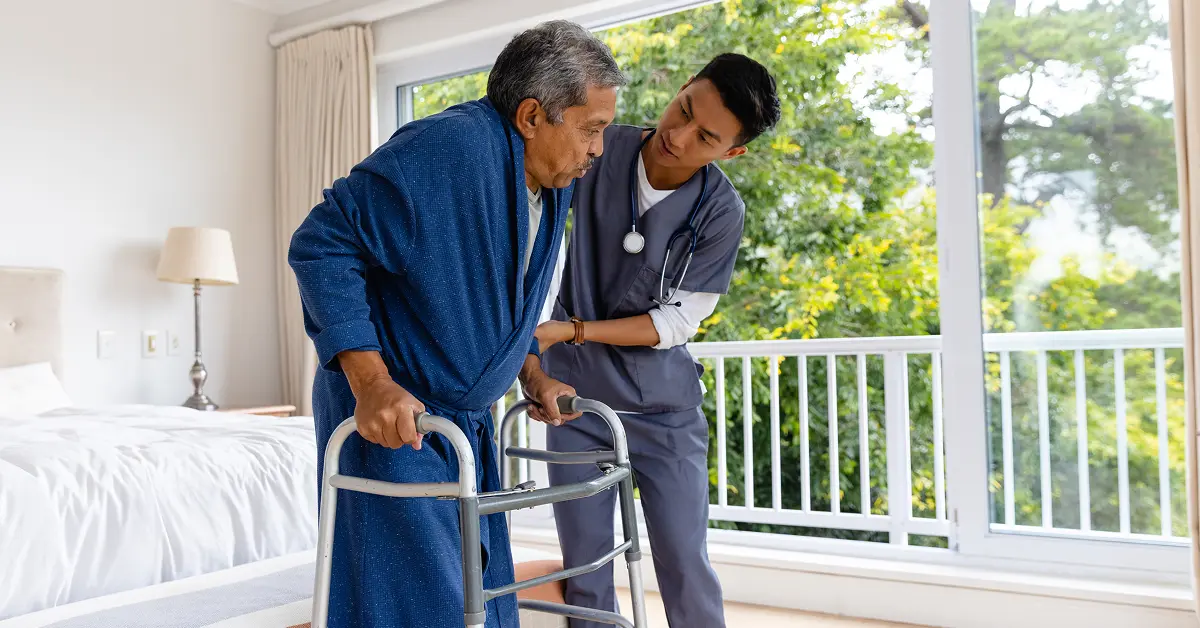Hospitalization can be physically and emotionally exhausting for patients and their families. While hospitals provide excellent acute care, the real challenge often begins after discharge, when patients return home. A smooth transition from hospital to home is crucial to prevent complications, avoid readmissions, and ensure proper recovery. With professional home-based post-discharge care, families can provide the necessary support for a safe and comfortable recovery.
The Importance of Transition Care
Transition care refers to the comprehensive support and medical oversight provided to patients immediately after leaving a hospital. This period is critical because patients are often vulnerable to complications, medication errors, and emotional stress. Studies have shown that effective transition care can significantly reduce readmissions and improve patient outcomes.
For elderly patients or those recovering from surgeries, chronic illnesses, or severe infections, professional support ensures that recovery is not interrupted. Families often find it challenging to balance care responsibilities with daily work and household duties, which makes home-based transition care an ideal solution.
Key Components of Smooth Transition Care
Comprehensive Assessment
Every patient has unique needs after hospital discharge. A trained caregiver or home health professional performs a thorough assessment to identify:
- Mobility challenges
- Medication schedules and requirements
- Nutritional needs
- Potential risks for complications or falls
This initial evaluation forms the foundation of a personalised care plan tailored to the patient’s condition.
Medication Management
Medication errors are one of the leading causes of complications after hospital discharge. Professional caregivers help by:
- Organizing medications based on the doctor’s prescriptions
- Reminding patients about doses
- Monitoring side effects
- Communicating with doctors if adjustments are needed
This reduces the risk of missed or incorrect doses and promotes a faster recovery.
Assistance with Daily Activities
Patients often struggle with basic activities during recovery, such as bathing, dressing, cooking, and moving around safely. Transition care services ensure that these daily tasks are handled with care and dignity. Assistance may include:
- Helping patients get in and out of bed safely
- Supporting mobility with walking aids
- Preparing healthy meals suitable for recovery
- Maintaining hygiene and grooming
This support prevents accidents and allows patients to regain strength without overexertion.
Physical Therapy and Rehabilitation
For post-surgery or injury recovery, regular physiotherapy is essential. Home-based caregivers can assist with exercises prescribed by physiotherapists, ensuring that patients regain mobility, strength, and independence. Rehabilitation support at home is not only convenient but also encourages consistent practice, which is key to recovery.
Emotional Support and Companionship
Hospital stays can be stressful and emotionally draining. Returning home can trigger feelings of anxiety or depression, especially for elderly patients living alone. Caregivers provide companionship, emotional support, and encouragement, helping patients stay positive and engaged in their recovery process.
Monitoring Vital Signs and Health Status
Certain patients require continuous monitoring of vital signs such as blood pressure, blood sugar, and oxygen levels. Home caregivers are trained to check these parameters, recognize warning signs, and alert medical professionals if needed. This proactive approach ensures timely interventions and peace of mind for families.
Coordination with Healthcare Providers
Smooth transition care involves seamless communication between caregivers, doctors, and family members. Caregivers report patient progress, medication responses, and any concerns to healthcare providers, ensuring that the recovery plan remains effective and adjustments are made promptly.
Benefits of Home-Based Transition Care
- Reduced Hospital Readmissions: Continuous care at home minimizes complications and unnecessary visits to hospitals.
- Personalised Recovery Plans: Care is tailored to each patient’s medical needs, preferences, and lifestyle.
- Enhanced Comfort and Familiarity: Recovering at home in a familiar environment promotes better mental and emotional well-being.
- Family Involvement: Families remain closely involved in the care process, with professional guidance to handle complex tasks.
- Cost-Effective Care: Home-based care is often more affordable than extended hospital stays or rehabilitation centers.
Choosing the Right Transition Care Provider
Selecting a reliable home care provider is crucial. Here are some tips:
- Trained and Certified Staff: Ensure caregivers are trained in post-discharge care, basic medical assistance, and emergency response.
- Customised Care Plans: The provider should offer personalised care plans based on assessments and doctor’s recommendations.
- Availability and Flexibility: Look for services that can provide care at different hours, including full-time, part-time, or hourly support.
- Transparent Pricing: Check that the provider offers clear pricing without hidden charges.
- Positive Reviews and References: Feedback from other patients can help gauge the quality of service.
Preparing Your Home for Recovery
A smooth transition also involves preparing the home environment for safety and convenience. Families can:
- Clear obstacles to prevent falls
- Ensure easy access to essential items
- Use supportive equipment like walkers, wheelchairs, or bed rails
- Maintain a clean and hygienic environment
- Create a quiet and comfortable recovery space
These small adjustments make a significant difference in the patient’s comfort and safety.
Conclusion
Post-hospital discharge recovery is a critical phase that requires attention, care, and monitoring. Smooth transition care at home ensures that patients receive personalised medical assistance, daily activity support, and emotional encouragement in a safe and familiar environment. With trained caregivers, families can focus on spending quality time with their loved ones rather than worrying about their recovery.
Investing in professional transition care is not just about physical recovery—it is about fostering dignity, independence, and peace of mind for both patients and their families. Ensuring a smooth transition from hospital to home ultimately leads to healthier outcomes, fewer readmissions, and a more positive post-hospital experience.
Contents
Our 24*7 services
Latest Posts
- What Is Respite Care and Why Is It Important
- Affordable home care for senior citizens in India
- Caring for Seniors with Dementia or Alzheimer's at Home
- Senior Caregiving A Guide for Every Family
- How to Write a Caregiver Resume That Gets You Hired
- How Care After Hospital Discharge Speeds Up Recovery at Home
- How to Get Home Health Care for Seniors Through Medicare
- What Does a Senior Citizen Caregiver Really Do at Home
- How to Care for Elderly Parents with Alzheimer’s or Dementia
- How to Get 24-Hour Care for Seniors at Home



